-
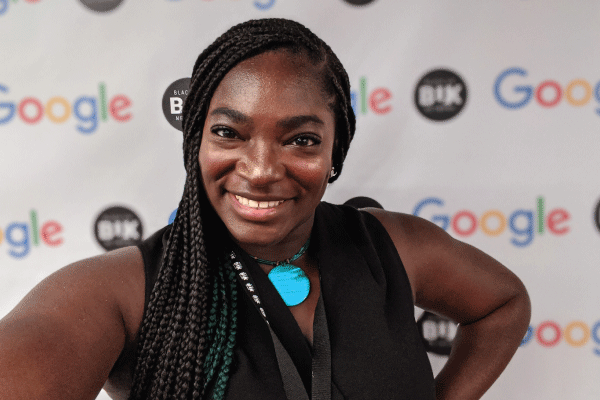
Back Page: Dr. Roboto
Melissa Smith brings a lifetime of fascination with robotics and human-computer interaction to her work as a senior user experience (UX) researcher at Stadia, Google’s gaming platform. Visit Page
-
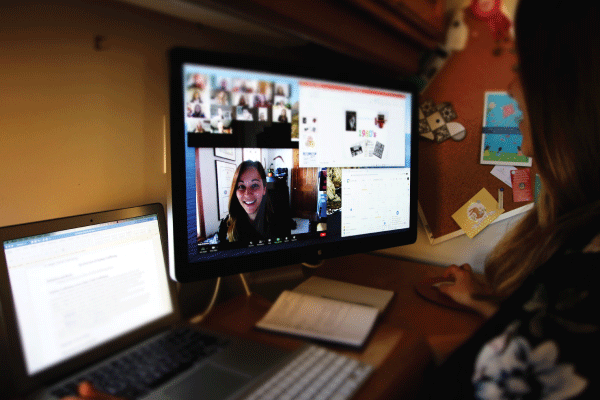
Careers Up Close: Sonja Brubacher on Best Practices for Investigative Interviewing
This Griffith University researcher works with law enforcement and child protection officials around the world to improve forensic interviews by bringing practitioners’ observations back
to the lab. Visit Page -
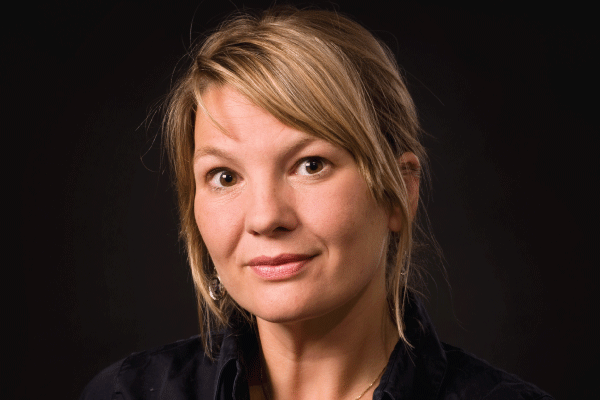
Frontiers of Psychological Science: An Interview with Eveline Crone
An eminent psychological scientist and APS Fellow is now heading up behavioral science at one of the European Union’s largest science funders. Visit Page
-
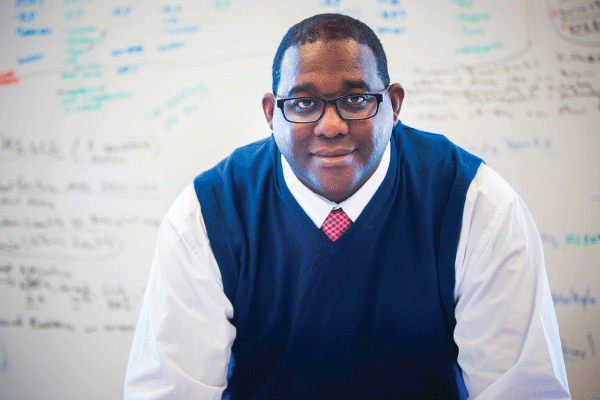
Connecting the Dots Between Biology and Addiction
With $2.3 million from the National Institutes of Health, Emory University psychological scientist Rohan Palmer is searching for the genetic influences that leave some individuals particularly vulnerable to addiction. Visit Page
-

Back Page: Nap Tracker
A pioneer in studying learning and memory during atypical development, University of Arizona professor Jamie Edgin is uncovering the effects of poor sleep on learning in children with Down syndrome. Visit Page
-
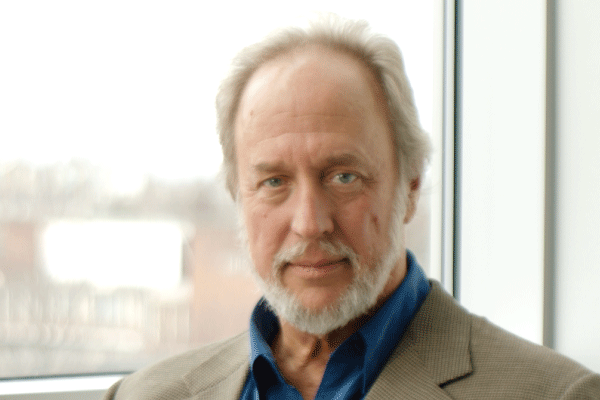
Robert Plomin Receives Grawemeyer Award for Behavioral Genetics Research
APS Fellow Robert Plomin has received the 2020 University of Louisville Grawemeyer Award for Psychology for his research on how DNA shapes personality. Visit Page
-
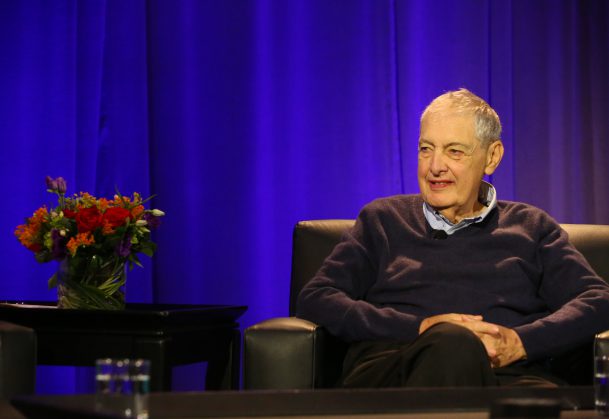
Inside the Psychologist’s Studio with Lee Ross
The social psychologist renowned for his research on human judgment and on conflict resolution discusses the impact of his work. Visit Page
-
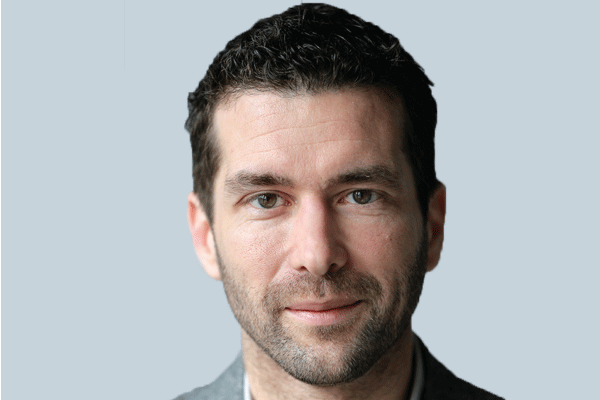
Back Page: Never Fear?
It may sound like he’s inducing amnesia, but psychology professor Tom Beckers is actually testing the possibility of targeting and muffling psychologically crippling memories. Visit Page
-

Careers Up Close: Woo-Young Ahn on Delineating Disorders
This Seoul National University professor uses computational modeling to identify the behavioral markers of addiction. Visit Page
The Faces and Minds of Psychological Science

Treatment for Aggression and Antisocial Child Behavior
Alan KazdinYale University
Aggressive and antisocial behavior (e.g., fighting, destroying property, stealing) among children and adolescents comprise one of the most expensive mental health problems in the United States and the most frequent basis of referral to clinical services for children. Alan Kazdin has drawn on basic and applied research in learning and cognition to develop two effective evidence-based interventions for these children that improve child functioning at home, at school, and in the community. He has conducted randomized trials with inpatient and outpatient children to develop these interventions, evaluated treatment processes that contribute to therapeutic change, and examined the role of child, parent, and family factors that influence and are influenced by treatment. Kazdin’s current focus is on models of delivering treatment that can reach the majority of children in need of treatment but who do not receive any services. His work also seeks to help redress disparities in care among diverse groups. Kazdin is the founding editor of the Association for Psychological Science (APS) journal Clinical Psychological Science and a recipient of the APS James McKeen Cattell Fellow Award for his lifetime of significant intellectual achievements in applied psychological research.
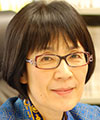
Cross-cultural Personality and Gender Equality
Fanny M. CheungThe Chinese University of Hong Kong
Fanny Cheung's research underscores the importance of cultural context in assessing personality: much of her early work has involved translating, adapting, and refining one of the most widely used personality assessments, the Minnesota Multiphasic Personality Inventory (MMPI), for the Chinese population. While the MMPI has been found to be generally valid across cultures, there has been a push in some Eastern Asian countries for indigenous assessments, which are designed to incorporate personality constructs that are more culturally relevant to the local people than some of those found in the imported western measures. This idea led Cheung to develop the Chinese Personality Assessment Inventory (CPAI), which combines universal elements of western assessment with indigenous measures specific to Chinese culture. The CPAI has been used in hundreds of studies on Chinese personality structure and cross-cultural comparisons of various dimensions of personality. Some of the indigenous dimensions were found to be relevant also to non-Chinese cultures and the CPAI was renamed Cross-cultural Personality Assessment Inventory. Cheung has also used her expertise in cross-cultural psychology to study gender equality, violence against women, and women leadership in Chinese populations.

Mathematic Models and Human Learning
Thomas L. GriffithsUniversity of California, Berkeley
Thomas Griffiths developed mathematical models of higher level cognition. He focuses on the abstract computational problems that underlie inductive human cognition, such as probabilistic reasoning, learning causal relationships, acquiring and using language, and inferring the structure of categories. He researches the ideal solutions to those problems using ideas from probability theory and Bayesian statistics, used to calculate the likelihood of a hypothesis. These statistical tools allow him to analyze human learning and link computer science research to artificial intelligence and machine learning. His innovative research won him a 2011 Janet Taylor Spence Award for Transformative Early Career Contributions from the Association for Psychological Science (APS). Q&A with Thomas L. Griffiths
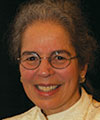
Health Risk
Nancy AdlerUniversity of California, San Francisco
Research has documented that Americans with more money and education have improved health prospects compared to poorer people. Nancy Adler has been a pioneer in investigating how social, psychological, and biological factors associated with socioeconomic status (SES) act together to determine the onset and progression of disease. Adler has investigated why individuals engage in health-damaging behaviors and how their understanding of risk affects their choices. This research has primarily been in reproductive health, examining adolescent decision making regarding contraception, conscious and preconscious motivation for pregnancy, and perceptions of risk of sexually transmitted diseases. She also examines subjective perceptions of one’s own socioeconomic status and how these perceptions relate to health along with objective indicators. Her work has raised the study of health disparities all over the globe to a new level of sophistication. Adler is the recipient of a special 25th anniversary APS James McKeen Cattell Fellow Award for her significant intellectual achievements in applied psychological research and their impact on a critical problem in society at large.

Seeing and Perceiving
Anne TreismanPrinceton University
Considered one of the world’s most influential cognitive psychologists, Anne Treisman developed a classic psychological model of human visual attention. The feature integration theory of attention proposes a two-stage model for our perception of objects. The pre-attentive phase occurs automatically, before conscious awareness. In this stage, her research suggests, we register the elementary features of a visual stimulus, before our minds have grouped those features or bound them to an object. In the second phase, called the focused attention stage, we combine the features to perceive the specific object. Treisman’s work has formed the basis for thousands of experiments in vision, cognitive, and neurological sciences. Her pioneering research on attention led President Barack Obama to award her the National Medal of Science.

Learning from Experience
Daphna ShohamyColumbia University
Daphna Shohamy researches learning, memory and decision making. Specifically, she tries to understand the underlying brain mechanisms of how we learn from experience and how we use what we learn to guide decisions and actions. She adopts an integrative approach that draws broadly on neuroscience to make predictions about cognition. Her research provides a deeper understanding of the cognitive and neural processes involved for different aspects of behavior. In 2011, Shohamy received a Janet Taylor Spence Award for Transformative Early Career Contributions from the Association for Psychological Science (APS). Q&A with Daphna Shohamy
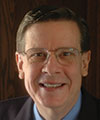
The Happiness Formula
Ed DienerUniversity of Illinois at Urbana-Champaign
Ed Diener has focused his career on uncovering the essential ingredients to subjective well-being, a term that includes positive feelings and life satisfaction. Nicknamed “Dr. Happiness,” Diener developed the Satisfaction with Life Scale and other measures of psychological well-being. In one noteworthy study, conducted with Martin E.P. Seligman, he found that students with the highest levels of happiness and fewest signs of depression had strong ties to friends and family. Another important finding is that there are some universals in what predicts happiness around the globe, such as trust and respect, but there are also some culture-specific causes as well. For example, self-esteem is more predictive of subjective well-being in individualistic cultures, and religiosity is more predictive of life satisfaction in highly religious societies. According to Diener’s research, even the majority of disadvantaged people, including those with disabilities, report greater-than-neutral levels of happiness. A new direction in Diener’s research is examining the outcomes of subjective well-being, and he has found that in general it leads to better health and social relationships, to greater work productivity, and to better citizenship. His empirical examination of happiness has contributed enormously to the understanding of human well-being. Diener is the recipient of a 25th anniversary APS William James Fellow Award for his significant intellectual contributions to the basic science of psychology. Read more about Diener’s research here.

Resilience in Children
Silvia KollerRio Grande do Sul Federal University, Brazil
Silvia Koller’s research focuses on children who have experienced homelessness, sexual abuse, or familial violence. Koller explores the impact of these circumstances on psychological development, and uses this information to better characterize the concept of resilience. Her hope is that understanding resilience, which she defines as a process rather than an individual trait, will lead to programs and policies that help children cope with adversity and prevent future generations from experiencing such hardship. Koller uses an ecological approach, viewing children’s development in the context of their family, community, school, and society. Using this framework to understand development and resilience, she has identified several factors, including a strong social support system and a high capacity for experiencing and expressing emotions, that aid the process of resilience. Her findings have helped shape child protection policies in Brazil, changing how authorities investigate child maltreatment and help children cope with abuse, and informing child maltreatment prevention programs.
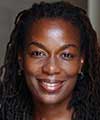
Insiders and Outsiders
Valerie Purdie-VaughnsColumbia University
When social groups interact, notions of “insiders” and “outsiders” develop. Using a variety of approaches – psychological, physiological, and neurobiological – Valerie Purdie-Vaughns seeks to understand relationships between social groups and reduce intergroup bias and conflict. In particular, she investigates how minority and majority groups interact, focusing on experiments that closely mirror real-world scenarios. For instance, several recent studies have examined how the anxiety of feeling stigmatized can lead to dysregulated eating and psychological distress. By linking neuroendocrine and stress biomarkers to contextual features of real-world settings, Purdie-Vaughns is able to understand the interaction between physiological mechanisms and environmental factors underlying stigmatization and group relations. Linking biology to social contexts allows her to better design effective solutions to social problems.

Neural Mechanisms of Learning and Decision Making
Michael J. FrankBrown University
Using basic neural and computer models, Michael Frank studies how we learn and make decisions. He hopes to shed light on how these pathways lead to more complex cognitive functions, such as working memory and cognitive control. Franks theoretical work has important clinical applications, and may help us understand, for example, how brain disorders such as Parkinsons disease alter cognition. Frank is also analyzing individual differences in cognition, in other words, why we all think in different ways. He uses a variety of techniques, including theoretical modeling, genetic analyses, and electrophysiological studies. In 2010, Frank was among the inaugural recipients of the APS Janet Taylor Spence Award for Transformative Early Career Contributions. Q&A with Michael J. Frank

The Nature of Empathy and Compassion
Tania SingerMax Planck Institute, Germany
Tania Singer is recognized as a world expert on empathy and compassion, and takes an interdisciplinary approach to study social and moral emotions such as fairness, envy, compassion, and revenge. In addition to brain imaging, her research methods include also game theoretical and psychological tasks, virtual reality environments and measuring biological markers such as the stress hormone cortisol. In a landmark 2004 study, she discovered that some of the same brain regions that are active when we feel pain also react to the knowledge that a loved one is being hurt. Those findings provided evidence that empathy on some level is an automatic, physiological response. Singer draws a distinction between empathy and compassion, defining the former as feeling someone else’s emotional state and the latter as warm feeling of cocern rooted in the desire to improve the wellbeing of another. She has looked at the negative effects of empathy, positing that too much empathetic suffering can lead to empathic disstress, depression and even burnout. She is testing training methods aimed at helping people to shift their emotional reactions from empathy toward compassion and is now conducting a unique large-scale one-year longitudinal compassion training study, the ReSource project, to investigate the differential effects of different mental training techniques on plasticity of the social brain and behavior. She also edited a free downloadable multi-media E-book on Compassion (www.compassion-training.org).
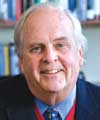
Treating Anxiety
David H. BarlowBoston University
Many of us battle with fear and anxiety in our daily lives, but David Barlow was one of the first clinical psychologists to take this fight into the laboratory. Not only did he conduct much of the research characterizing the etiology of anxiety, but Barlow also can be credited with many of the breakthroughs in the treatment of anxiety disorders. His use of situational and interoceptive exposure as a treatment for panic disorders laid the foundation for the wider development of empirically validated cognitive behavioral therapies that have come to replace less scientifically sound treatment methodologies. In order to combat the surfeit of disorder-specific treatments that abound in today’s clinical environment, Barlow is now focusing on developing a transdiagnostic treatment model. This model unifies the core principles of all emotional treatment models and thus can be applied to many different psychopathologies. Barlow hopes this more universal approach will enable treatments to be more readily disseminated to clinicians and, ultimately, to the patients who need them most. He is a recipient of the Association for Psychological Science (APS) James McKeen Cattell Fellow Award for his lifetime of significant intellectual achievements in applied psychological research and their impact on a critical problem in society. Watch Barlow’s Award Address at the 24th APS Annual Convention.

Understanding Harmful Behavior
Matthew NockHarvard University
After being assigned to an academic externship at a unit in a London psychiatric hospital where violent and self-injurious patients were treated, Matthew Nock became interested in the question of why people intentionally harm themselves. Ever since that experience, Nock has pursued research to deepen scientific understanding of suicide and self-injury. His studies have approached self-injury behaviors from multiple angles to better understand how such behaviors develop, can be predicted, and prevented. Nock collaborated with Mahzarin Banaji to adapt the Implicit Association Test (IAT) to measure suicidal thoughts in teenagers.

Behavior Through Mathematical Modeling
Dirk HelbingSwiss Federal Institute of Technology, Zurich, Switzerland
Understanding behavior through Mathematical Modeling has been used to simulate everything from climate patterns to population growth, but Dirk Helbing uses them to examine something even more complex, namely human behavior. Drawing on his background in physics, Helbing developed the “social force model” to simulate the movement of pedestrians, whose behavior can depend on variables such as desired velocity and the distance between a pedestrian and other people or objects. He has also used mathematical methods to study a variety of behaviors including cooperation, social norms, conflicts, and revolutions, traffic flows, and the self-organization of groups. Helbing is currently leading an ambitious project called FuturICT with its Living Earth Simulator, a computer simulation that aims to model life on Earth, with a focus on techno-socio-economic systems. He hopes to one day use this computer-modeled world to understand current global economic and societal activity, and prevent or mitigate crises.

The Nature/Nurture Mixture
Terrie MoffittDuke University
The nature/nurture interaction is a vibrant and important field of study in behavioral science. Terrie Moffitt has focused her research on how genes and environment can, in certain combinations, spur antisocial and criminal behaviors. Her groundbreaking research, in collaboration with psychological scientist Avshalom Caspi, showed that individuals with a specific genotype are more vulnerable to developing antisocial and violent behavior if they are mistreated during childhood. She’s also linked another genotype to a risk for depression in the wake of stressful life events. Watch Terrie Moffitt's keynote address at the inaugural International Convention of Psychological Science.

Navigating Diverse Environments
Jennifer RichesonYale University
Living and working in a diverse community offers many opportunities, but also many challenges. Jennifer Richeson studies the challenges of navigating diverse environments for both members of dominant groups and members of socially-devalued, minority groups. Using techniques ranging from the examination of nonverbal behavior to the study of brain scans, Richeson and her team have found that most people find it difficult to interact with others across racial boundaries. Indeed, the effort individuals put forth during cross-race interactions, for instance, can leave them cognitively drained. For example, a white individual is likely to perform less well on a puzzle after being interviewed about race-related topics by a black interviewer (and vice versa), suggesting that individuals are devoting considerable mental resources in their attempts to avoid saying and doing “the wrong thing” during the interaction. In addition to studying interracial contact, Richeson is also investigating how racial bias affects health and decision-making, the consequences of managing a stigmatized identity, and intergroup trust. The MacArthur Foundation awarded Richeson with a fellowship in recognition of the creativity and promise of her work.
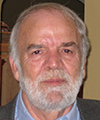
Ways of Remembering
Larry L. JacobyWashington University in St. Louis
Larry Jacoby is one of the world’s foremost researchers on memory — specifically on the difference between conscious and automatic memory. The distinction is useful for better understanding age-related differences in memory performance. His studies reveal, for example, that our ability to recall specific events declines as we age, spurring us to rely on unconscious, automatic memories. These unconscious influences can be misleading, often tricking people into remembering events that never really occurred. In addition to further refining theory about memory, one of Jacoby’s fundamental research goals is to develop procedures for the diagnosis and treatment of memory deficits.

Emotions and How We Remember
Elizabeth A. KensingerBoston College
Elizabeth Kensinger's research focuses on how emotions affect the way we remember information. She is interested in understanding how the emotional part of information affects the cognitive and neural processes that we use to remember it. Kensinger studies memory in young adults and how memory changes over time. Her research challenges the common understanding that “memory declines with age,” and shows the complex ways in which memory does and does not change as we get older. In 2010, Kensinger was among the inaugural recipients of the APS Janet Taylor Spence Award for Transformative Early Career Contributions. Q&A with Elizabeth Kensinger
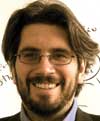
Evaluating Emotional Responses
William A. CunninghamOhio State University
Evaluation is something people do every day, whether they are assessing their to-do list or forming opinions about a book they’re reading. William Cunningham is investigating how evaluating other people or objects leads to emotional responses. Through a combination of social psychological and cognitive neuroscience techniques, Cunningham has found that affective states (in other words, emotional states) are built moment to moment by multiple processes that link together relevant information about the person’s environment with their own personal attitudes. He has studied these processes in various constructs including the study of prejudice, decision-making, political attitudes, morality and emotional development in children. Through his work, Cunningham is hoping to build a more complete picture of the processes behind emotion. His groundbreaking research made him one of the 2011 recipients of the Janet Taylor Spence Award for Transformative Early Career Contributions from the Association for Psychological Science (APS). Q&A with William A. Cunningham

Regulating Social Behavior
David AmodioNew York University
How do people regulate their social behavior, especially when unconscious prejudices and stereotypes threaten to bias our responses? David Amodio studies the mechanisms of self-regulation by integrating ideas and methods from social psychology, neuroscience, and psychophysiology. His research has elucidated the sources of implicit bias, rooted in separate systems for learning and memory, as well as the interacting neurocognitive mechanisms involved in the control of social responses. This work has led to a better understanding of why self-regulation sometimes fails and why some people are better at self-regulation than others. It has also informed basic theories of cognitive neuroscience regarding the way that goals and motivations shape cognitive and perceptual mechanisms of response control. In 2010, Amodio was among the inaugural recipients of the APS Janet Taylor Spence Award for Transformative Early Career Contributions. Q&A with David Amodio

Managing Stress the Healthy Way
Shelley E. TaylorUniversity of California, Los Angeles
Shelley E. Taylors research explores our ability to perceive some stressful situations in ways that have both psychological and biological benefits. Taylors research shows that in some circumstances, we can develop “positive illusions” – such as an illusion of personal control or unrealistic optimism about the future – to handle stressful situations. Taylors tend-and-befriend model illustrates how people, especially women, will come together support one another in stressful situations. Her lab is examining the genetic, early environmental, and neurocognitive origins of these coping mechanisms and their benefits. Taylor is a recipient of the Association for Psychological Science (APS) William James Fellow Award for her lifetime of significant intellectual achievements to the basic science of psychology.

Good Stress, Bad Stress
Bruce S. McEwenThe Rockefeller University
Over the course of one’s life, hormonal changes alter behavior, mood, and cognition. Bruce McEwen has spent more than 40 years studying how hormones regulate the brain and nervous system, and his lab helped draw distinctions between the vital and toxic forms of stress. McEwen coined the term allostatic load, a concept that explains how stress systems that help the body survive can cause problems when overworked. This work has led to a realization that stress hormone effects are protective in the short term and potentially damaging in the long term.
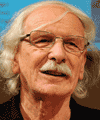
Mirror Neurons
Giacomo RizzolattiUniversità degli Studi di Parma, Italy
Giacomo Rizzolatti has a longstanding interest in how the cognitive functions of the brain are connected to movement. When he and his colleagues were studying neurons that control hand and mouth actions in monkeys, they noticed that the neurons would not only activate when the animal picked up a piece of food, but the neurons would also switch on when the monkey saw a person pick up a piece of food. Many researchers believe that these neurons could be important for imitation, language acquisition, and various forms of perception. The development of mirror neurons in humans is what allows us to learn through observation and communication and may play a role in how we understand the actions of others. Rizzolatti’s research on mirror neurons has inspired the development of “mirror treatments” to help stroke victims recover motor function as well as countless other publications that span various disciplines in psychology, neuroscience, and health. Among his many awards are the Golgi Prize for Physiology, George Miller Award of the Cognitive Neuroscience Society, the Feltrinelli Prize for Medicine of Accademia dei Lincei, the Herlitzka Prize for Physiology, the Prince of Asturias Award for Technical and Scientific Research, and the Grawemeyer Award in Psychology.
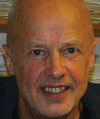
Finding the Inner Voices
Kenneth HugdahlUniversity of Bergen, Norway
Hearing voices in one’s head is a hallmark symptom of schizophrenia. Those auditory hallucinations are caused by overstimulation in the brain regions that process sound. But when the inner voices start talking, the brain fails to respond to real voices. Biological psychological scientist Kenneth Hugdahl and his research team identified this paradox when they had hallucinating patients listen to sounds through headphones and measured their brain activity using neuroimaging technology, in addition to psychological measures. They found that the heightened brain activity that is associated with vocal hallucinations simultaneously douses the perception of real sounds. This explains why schizophrenia patients seem shut off from the outside world. Hugdahl’s team is testing ways to help schizophrenia patients focus on outside voices when the inner voices are active.
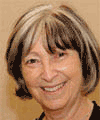
Dieting and Self Image
Janet PolivyUniversity of Toronto, Mississauga
Eating behavior is increasingly relevant in a world where many people are overweight or obese. Janet Polivy developed an interest in behaviors associated with dieting and eating in grad school when she showed that dieters will overeat if they think they have broken their diets, regardless of whether or not they ate a high-calorie food. Polivy has also studied “False Hope Syndrome,” a mindset that people develop when they have unrealistic ideas of how quickly and easily they can change themselves. She has investigated the impact these ideas have on behavior and self-image in people who are attempting to make changes in their lives. Currently, Polivy is researching social influences on eating, food cues, and the effects of calorie labeling on the foods people choose and how much they eat.

Building Emotions
Lisa Feldman BarrettNortheastern University
Emotions like anger, sadness, and fear have traditionally been thought of as innate, discrete entities, each with its own biological core: An event (seeing a snake) triggers a particular hardwired emotion (fear) and its corresponding behavioral and physiological responses (an adrenaline surge, screaming, running away). As Lisa Feldman Barrett has found, however, this view is not well supported by the scientific literature, and so she has developed a model that is more in line with the data. The Conceptual Act Model conceives of emotions not as the basic building blocks of the mind, but as complex perceptions, built from four basic systems – core affect, conceptualization, executive control, and language. Different emotions (e.g., the unpleasant fear of threat, the pleasant fear on a rollercoaster) are produced by combining these systems in different ways, the way that subatomic particles create atoms and molecules. Barrett is now focused on empirically validating this model using psychological and neuroscience techniques and achieving a deeper understanding of how the brain integrates our core affective and conceptual systems to form emotional constructions. She is a recipient of the US National Institutes of Health Director’s Pioneer Award and a member of theRoyal Society of Canada.

Language and Cognition
Gabriella ViglioccoUniversity College London
Gabriella Vigliocco investigates how our brains integrate language and cognition, examining a variety of languages, both spoken and signed, and using tools from several disciplines, including neuroscience and experimental psychology. Over the years, her work has contributed to our understanding of how we represent meaning, how cognition shapes languages and how language shapes cognition. She has challenged many traditional ideas about language, like the notion that language is a modular and purely symbolic system that does not entail direct links with our sensory-motor and affective experience. She has developed theoretical and computational models of how meaning is represented and how sentences are produced that account for language performance in terms of interactions among different types of linguistic and non-linguistic information. She is now using these models to tackle questions like how abstract concepts such as justice and courage are formed and processed in our brains.
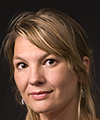
Probing the Teen Brain
Eveline CroneLeiden University
Adolescence is widely seen as a period of moodiness and risk-taking. Much of that stems from uneven development in the brain during the teenage years. Eveline Crone has used brain imaging technology to identify this imbalance, and to study how it effects teenagers’ sensitivity to emotional stimuli. Her work has shown that during adolescence, the brain regions that respond to pleasure and sensation-seeking develop discordantly with regions associated with reasoning. That can explain some of the impulsive behavior typically associated with teenagers. But Crone has also found that adolescents are extremely creative, due to an overproduction of grey matter in certain areas of the brain. Her work is helping parents, educators, and society at large better understand this special phase in human development.
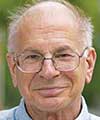
How We Really Make Decisions
Daniel KahnemanPrinceton University
For centuries, philosophers, economists, and social scientists assumed that human beings are generally rational. Daniel Kahneman upended that assumption with findings that continue to reverberate through several scientific disciplines and have enormous implications for public policy. In his groundbreaking work with the late Amos Tversky, Kahneman, one of the most influential psychologists of our time, showed that when we face uncertain situations, we don’t examine the information in ways that are characterized as rational. Instead, we take mental shortcuts that can lead to seemingly illogical decisions. Kahneman and Tversky published a series of seminal articles on judgment and decision-making that led to their prospect theory. That theory explained how we avoid risk when making decisions that offer a potential gain, and take risks when making decisions that could lead to a certain loss. Among other things, it explains why investors hold onto losing stocks too long and sell winning stocks too soon. Kahneman and Tversky’s research led to the field of behavioral economics, the study of the effects of social, cognitive, and emotional factors on economic decisions. In the 1990s, Kahneman shifted the focus of his research to hedonic psychology—the study of what makes life and experiences pleasant or unpleasant. In 2002, Kahneman was awarded the Nobel Prize in Economics for his work with Tversky, and in 2013 he received the Presidential Medal of Freedom, the highest civilian honor in the United States. His best-selling book Thinking Fast and Slow summarized his research over the decades and was selected by the New York Times Book Review as one of the best books of 2011. He is a member of the National Academy of Sciences and the American Academy of Arts and Sciences. Kahneman is also the recipient of the APS William James Fellow Award for his outstanding contributions to scientific psychology. Watch Inside the Psychologist’s Studio with Daniel Kahneman
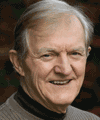
Memory and Learning, Researcher and Theorist
Gordon BowerStanford University
Gordon Bower is one of the premier experimental psychologists and learning theorists. Bower’s research focuses on the ways that various cognitive processes – such as imagery, emotion, and reading and language comprehension – relate to memory, learning and reasoning. Bower was one of the first researchers to examine the effects of mood on memory, and his research has greatly contributed to our knowledge of state-dependent memory and learning. Bower’s service as Chief Scientific Advisor to the NIMH Director and his appointment as leader of an NIMH task force commissioned to review the state of mental health knowledge and research have positively impacted the direction of psychological science. His pioneering work earned him one of the United States’ highest scientific honors, the National Medal of Science. A Past President of the Association for Psychological Science (APS), Bower is a member of the National Academy of Sciences and a recipient of the Howard Crosby Warren Medal, the Distinguished Scientific Contributions Award, the Wilbur Cross Medal for Distinguished Scientific Contributions, and the APS William James Fellow Award for his lifetime of significant intellectual contributions to the basic science of psychology. Watch Inside the Psychologist’s Studio: An Interview with Gordon Bower.
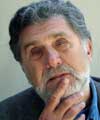
Human Motivation
Elliot AronsonUniversity of California, Santa Cruz
Elliot Aronson is perhaps best known for his experiments refining the theory of cognitive dissonance, which states that people will change their attitudes or behaviors to reduce cognitive discomfort caused by performing actions that are inconsistent with their beliefs. He is also recognized for his work seeking to understand and reduce intergroup and racial conflict -- leading to the creation of the Jigsaw Classroom intervention program. Aronson is known for applying theory and research to real-world problems, and for challenging researchers to adapt their findings for use in everyday life. His textbook The Social Animal, has been widely used for over 40 years. Aronson is the only person to have won all three of APA's major awards for distinguished writing, distinguished teaching, and distinguished research. The Review of General Psychology listed him as one of the 100 most eminent psychologists of the 20th century. He is also the recipient of the Donald Campbell Award, the Gordon Allport Prize and the Association for Psychological Science (APS) William James Fellow Award for his lifetime of significant intellectual contributions to the basic science of psychology. Watch Elliot Aronson: The Intersection of Art and Science.

Understanding Mind-Body Influences
Wendy Berry MendesUniversity of California, San Francisco
Wendy Berry Mendes focuses her research on embodiment -- how the mind and body reciprocally influence each other. Specifically, she looks at how the brain and body experience emotions, stress, and motivation and how physical responses influence behavior and decision-making. Her research looks at a wide range of topics from coping with stigma and discrimination, to the differentiation of “good” and “bad” stress physiology and how they influence decision-making, to mind-body relations across the lifespan. Mendes is the co-author of the book Social Psychophysiology for Social and Personality Psychology, and one of the 2011 recipients of the Janet Taylor Spence Award for Transformative Early Career Contributions from the Association for Psychological Science (APS). Q&A with Wendy Berry Mendes
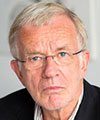
The Link Between Perceiving and Doing
Wolfgang PrinzMax Planck Institute, Germany
Common coding theory holds that seeing, hearing, or thinking about an action triggers the same cognitive processes that are activated when we actually perform the action. Experimental psychological scientist Wolfgang Prinz is the founder of that theory, which provided a critical foundation for advances in cognitive neuroscience. The discovery of mirror neurons in macaque monkeys (neurons that fire both when the monkeys perceived another performing an action, such as grabbing a piece of food, and when they actually grasp the food themselves) provided some of the first neurophysiological evidence for common coding. Functional neuroimaging experiments in humans also indicate that the neural circuits involved in action execution partly overlap with those activated when actions are observed. Prinz’ work suggests that perception and action are integral and interactive features of overall cognition.

Children’s Language Advantage
Elissa L. NewportGeorgetown University
Why are children more successful at learning a new language compared to adults? Elissa Newport has devoted her career to studying human language acquisition, including the learning differences between children and adults. In her “less-is-more” hypothesis, she posits that children are better able than adults to learn languages because, paradoxically, they have fewer cognitive resources available to them. They naturally catch on to small parts of a language — sometimes making them even more regular than they were in the input language — and acquire its more complex or irregular aspects as they mature. In contrast, adults struggle to master a new language because they try to analyze the complexities from the start and do not as readily find the broad patterns. Newport’s most recent work uses functional MRI to examine how signed and spoken languages are represented in the brain and how language is reorganized after brain damage or disease.
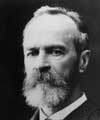
Birth of a Science
William JamesPsychology just wouldn’t be the same without William James, known as the father of modern American psychology. He initially earned a degree at Harvard Medical School, but rather than practice medicine, James wandered into the fields of philosophy and psychology. He acknowledged that he was a newbie, writing that “I never had any philosophic instruction, the first lecture on psychology I ever heard being the first I ever gave.” But that didn’t stop James. A prolific writer, he published books and essays on topics ranging from emotion theory to free will, and wrote up until the day he died. James is best known for his classic psychology text The Principles of Psychology, a work that had a profound impact on the field of psychological science. Most researchers and theorists would shudder to think what modern psychology would be like if James decided to do something with that MD. The Association for Psychological Science (APS) established the William James Fellow Award to honor individuals for their lifetime of significant intellectual contributions to the basic science of psychology.
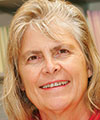
A Sense of Belonging
Marilynn BrewerUniversity of New South Wales, Australia
Are wars, rivalries, and other conflicts an inevitable part of intergroup relations? Marilynn Brewer says no. Internationally recognized for her research on social identity, collective decision making, prejudice, and intergroup relations, Brewer showed that people attach themselves to a group not because of ill feelings toward other groups, but because they simply are looking for a place of trust and security. Brewer is particularly recognized for her theory of optimal distinctiveness, based on the idea that the conflicting costs and benefits of sustaining an optimal group size would have shaped social motives at the individual level. The theory posited that we have distinct, and opposing, drives to belong to groups and to assert our individuality. As we feel more included in a group, our need to differentiate ourselves becomes more salient. This motivates us to identify with distinctive groups that can satisfy both needs simultaneously. Brewer is an APS Past President and recipient of a special 25th anniversary APS William James Fellow Award for her lifetime of significant intellectual contributions to the basic science of psychology. Read more about Brewer’s research here.
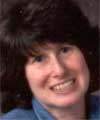
Children As Eyewitnesses
Gail S. GoodmanUniversity of California, Davis
Would you believe a child witness? When Gail Goodman first posed this question in 1981, she found that most judges and juries didn’t have an answer, so she conducted much of the early research in the now robust fields of child memory and children as eyewitnesses. She showed that many children are quite capable of accurately recounting witnessed events, but that their accuracy is strongly affected by factors like the type of questions asked and the amount of intimidation or comfort the child experiences while being interviewed. She has also studied the emotional effects of testifying on a child, and has found that many children who have testified in a legal setting showed improvements in emotional well-being over time comparable to that for child victims who did not testify. For other children, special protections in court are likely needed. Goodman is a recipient of the APS James McKeen Cattell Fellow Award for her lifetime of significant intellectual achievements in applied psychological research and impact on a critical problem in society at large. Watch Goodman’s Award Address at the 24th APS Annual Convention.
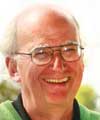
Birth of Cognitive Neuroscience
Michael GazzanigaUniversity of California, Santa Barbara
Michael Gazzaniga, a Past President of the Association for Psychological Science (APS), is widely considered to be one of the fathers of the field of cognitive neuroscience, founding the Journal of Cognitive Neuroscience, the Cognitive Neuroscience Society, and serving as Editor-in-Chief of The Cognitive Neurosciences – considered to be the sourcebook for that field. He is credited with being the first researcher to examine split brain patients in order to understand whether some cognitive functions are predominantly performed in one brain hemisphere or the other. Gazzaniga’s examination of split brain patients and his contributions to the field have greatly enhanced our understanding of lateralization of cognitive function within the brain, and how the two brain hemispheres communicate. Gazzaniga is a member of the National Academy of Sciences a fellow of the American Academy of Arts and Sciences, the Institute of Medicine, and the American Association for the Advancement of Science. Watch Inside the Psychologist’s Studio with Michael Gazzaniga. Watch Gazzaniga's Keynote Address at the 25th APS Annual Convention.

Understanding Unconscious Associations
Mahzarin R. BanajiHarvard University
Mahzarin Banaji studies how our minds make decisions without awareness, intention, and control. She analyses how one human being judges another and the extent to which social groups (such as nationality, gender, race, physical attributes) enter into choices. She studies both behavior and the brain, she analyzes the minds of both adults and young children, and she conducts her experiments in the traditional laboratory as well as on the web. With two colleagues she hosts an educational and research site (www.implicit.harvard.edu) at which the Implicit Association Test (IAT) is used to teach people about the associations in our minds of which we are unaware. By exposing people to their own unconscious bias, and by speaking publicly about her own biases, Banaji works to increase awareness with the hope of changing minds through psychological science. Watch Inside the Psychologist’s Studio with Mahzarin Banaji and Rebecca Saxe. Watch Banaji's Keynote Address at the 26th APS Annual Convention.
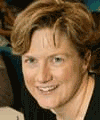
Memory Shapes Future Scenarios
Kathleen McDermottWashington University in St Louis
Kathleen McDermott’s recent work focuses on comparing the human abilities of remembering the past and envisioning specific future scenarios. Her research shows the neural substrates of these two actions to be interrelated, suggesting that envisioning the future may be impossible without a recollection of the past. Earlier work by McDermott included development of the Deese-Roediger-McDermott paradigm, which demonstrates that when given a list of related words there is a high probability of one falsely remembering an unlisted associated word. Additionally, using both behavioral and neuroimaging techniques McDermott studies why retrieval practice is beneficial in promoting retention of information over the long term.

A New Future for Clinical Science
Richard McFallIndiana University and the Psychological Clinical Science Accreditation System
Richard McFall’s work has spanned several areas of research including social competence and information processing, psychopathology, and classical conditioning. Throughout his career he has demonstrated a commitment to the use of scientifically valid techniques and treatments. In his Manifesto For A Science of Clinical Psychology he outlined his views on the importance of the integration of science and practice, both in the field, and in the training of the next generation of clinicians. His Manifesto was an instrumental call to action that led to the creation of the Academy of Psychological Clinical Science (APCS) and McFall served as its founding president. His is also the founding executive director of the Psychological Clinical Science Accreditation System (PCSAS), a non-profit body which provides accreditation to PhD programs in psychological clinical science. McFall is a Fellow of the Association for Psychological Science (APS), and a recipient of the Society for a Science of Clinical Psychology’s Distinguished Scientist Award.
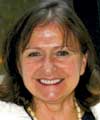
Developmental Rerouting
Annette Karmiloff-SmithBirkbeck, University of London, United Kingdom
Scientists often think of the adult brain as being “modular,” containing many systems that each specialize in a given function like language or number, relatively independent of one another; this explains why damage to the mature brain in adults tends to impair certain brain functions while leaving others intact. However, Annette Karmiloff-Smith believed that this modular framework cannot be applied to the developing brain. In her research on infants with genetic developmental disorders like Williams syndrome, Down syndrome and Fragile X syndrome, she found that these disorders are not manifestations of damage to specific brain areas in an otherwise intact typical brain, but rather that early atypical processing impacts on many regions, some more subtly than others, and that interactions across brain regions give rise to different developmental trajectories of brain development. Karmiloff-Smith believed that a genetic disorder’s cognitive-level symptoms can be traced back to these early neural developmental differences, and that understanding full atypical trajectories is critical for designing treatments. Since it is in infancy that the brain shows maximum plasticity, even a small developmental rerouting could have a large impact later in life. A Past APS Board Member, Karmiloff-Smith passed away in December 2016. Watch A Dynamic Approach to Developmental Disorders Watch Inside the Psychologist’s Studio with Annette Karmiloff-Smith and BJ Casey.

The Creative Workplace
Christina E. ShalleyGeorgia Institute of Technology
The work day can often be somewhat predictable and routine, but Christina E. Shalley is attempting to enhance the creativity of employees. Shalleys research focuses on how a variety of social and contextual factors affect individuals and teams creativity. Her research combines psychology and management, using a variety of survey and experimental techniques. Specifically, she is investigating how to make jobs and work environments more conducive for creativity. Shalley has also studied group behavior and found that having a lot of personal ties and a diverse social network makes individuals more creative when they are working with others, increasing the teams overall creativity.

Practical Wisdom
Barry SchwartzSwarthmore College
Everywhere we turn these days, we are confronted with a dizzying array of choices, whether we’re shopping at the supermarket or searching for a first home. Barry Schwartz’s research investigates the decision-making processes that underlie our choices and examines how our choices make us feel. Schwartz’s research has shown that, rather than making us feel better, having more freedom and choice often makes us feel worse. Specifically, the expectation of choice may cause us to question our choices before we make them and can lead us to be disappointed with them afterward. More recently, Schwartz has turned to examine the role of ‘practical wisdom’ – built on personal experience, ethics, and judgment – in decision-making. Throughout his work, Schwartz blends insights from psychological science and economics to understand how we make decisions, how we come to value some things above others, and how we balance our sense of morality with our own self-interest. Schwartz is the author of several best-selling books, including The Paradox of Choice: Why More Is Less and Practical Wisdom: The Right Way to Do the Right Thing. Watch Schwartz’s Bring the Family Address at the 24th APS Annual Convention.
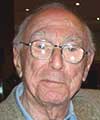
A Founder of the Cognitive Revolution
Jerome S. BrunerNew York University
As one of the most influential cognitive psychologists of the 20th century, Jerome S. Bruner changed the public discourse - and policy - regarding education and how children learn. He is one of the founders of the "cognitive revolution" that transformed not only psychology but other fields related to the mind, such as anthropology, neuroscience, and linguistics. Many of his ideas, which may seem intuitive now, ran counter to the prevailing wisdom of the time, primarily his belief that learning is an active process. This principle pervades Bruner's work: he emphasized the value of teaching children fundamental structure over facts, as it empowers them to actively participate in the quest for knowledge. He also controversially argued that any topic, when appropriately framed, can be taught effectively to children at any stage of development. Some of Bruner's most influential cognitive research includes his concept that people use three systems to acquire knowledge: enactive, iconic, and symbolic (which are based on action, images, and language, respectively), as well as his emphasis on the importance of categorization in every facet of cognition, from perception to decision making. He later shifted focus to the larger cultural aspects of learning, such as the influence of social factors on a child's perception and language development. Bruner's current research focuses on the way we form and use narrative constructions of reality, especially in regard to cultural institutions like the law. Watch Inside the Psychologist’s Studio: An Interview with Jerome S. Bruner

By the Numbers
Stanislas DehaeneCollège de France
Studies on human development have shown that even as infants, we have an approximate sense of numbers and amounts. How does this underlie our ability to perform complex calculations? Stanislas Dehaene explores this question through neuroscience. He has used brain imaging to study how the human mind processes numeracy, as well as language. Through his work he has found brain regions specifically involved in mathematical thinking, including the distinction between subtraction and multiplication. Dehaene has also uncovered the neural activity at the core of conscious awareness and experience. Watch Stanislas Dehaene's keynote address at the inaugural International Convention of Psychological Science.
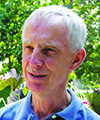
The Nature of Culture
Douglas L. MedinNorthwestern University
Douglas Medin has explored scientific reasoning in children and adults across cultures, as well as across urban versus rural populations. His research also has focused on what is known as commons behavior. This line of inquiry asks why certain populations do or don’t destroy a shared environment to fulfill selfish needs. His research teams have studied indigenous Mayan populations and found that they share natural resources without draining them, largely because they develop a rich, spiritual understanding of forest ecology. Medin’s work has helped move psychological science beyond laboratory models to a broader focus on how our cultural background influences our view of the world.
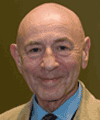
Delayed Success
Walter MischelColumbia University
As part of his efforts to develop empirical tests to examine personality and to understand the mechanisms that enable self-control, Walter Mischel conducted a series of experiments known as the Stanford Marshmallow Tests. In the experiment, Mischel gave a child a choice between a single marshmallow, obtainable immediately, or two marshmallows obtainable by waiting for them. He found that children who were able to delay gratification and waited longer to get more marshmallows (or other treats), were later in life better adjusted, more dependable and able to tolerate frustration, and as high school students scored much higher on the collegiate Scholastic Aptitude Test. Follow-ups with these participants 40 years later are also revealing important differences in cognitive and neural mechanisms (e.g. revealed by brain scans) linked to their self-control behavior over the life course. Mischel’s research looks at the psycho-social and physiological mechanisms that underlie adaptive self and emotional regulation in hopes of further understanding how these factors impact consequential real-world behaviors including mental and physical health. His theory that personality cannot be separated from the contexts and the specific situations with which the person interacts revolutionized the field of personality psychology and sparked the development of new methods and models to study individual differences in social behavior. Mischel is a member of the National Academy of Sciences and a Fellow of the American Academy of Arts and Sciences. He is a Past President of the Association for Psychological Science (APS) and is the recipient of the field’s highest honors in areas ranging from clinical to social to personality psychology, including more than 50 years of continuous research support from the National Institutes of Health, two consecutive National Institute of Mental Health MERIT Awards, and the 2011 Grawemeyer Award.
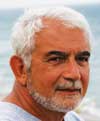
Uncovering the Embodiment of Communication
Gün R. SeminISPA – Instituto Universitário, Portugal and Utrecht University, The Netherlands
Gün R. Semin's general research interests center on language, social cognition and communication. He edited the book, Embodied Grounding, focuses on the emerging view that language and other cognitive processes must be understood in terms of the bodily states to which they are bound. This embodiment perspective focuses on the whole being not just one isolated information processing system and brings together research from neuroscience, cognitive science and social psychology. Semin also focuses on the interface between social cognition and interpersonal language, how social proximity and distance is communicated by the use of specific linguistic tools, and the use of language as a tool to implement cognition in social interaction.
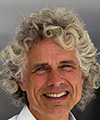
Language, Mind, and Human Nature
Steven PinkerHarvard University
Hailed as one of the world’s most influential people, experimental psychologist Steven Pinker’s interests span all aspects of language, mind, and human nature. In his classic book The Language Instinct, Pinker argues that languages are learned but that language is an instinct — an evolutionary adaptation for the communication of complex ideas. Pinker has studied the meaning and acquisition of verbs, and what they tell us about concepts of causation, space, time, and intentions. He has also studied the forms of verbs, particularly the contrast between regular forms of the past tense, which are generated by the mental rule “add -ed” (talk, talked), and irregular forms (grow, grew), which have to be memorized. He also has studied the neural bases of language processing and the psychology of innuendo and euphemism, and in 2014 published a style manual applying psycholinguistics to writing. In addition to language, Pinker has written on vast stretches of the human mind, including emotion, vision, reasoning, and especially violence. In The Better Angels of Our Nature: Why Violence Has Declined, Pinker presents data showing that we are living in the most peaceful time in human history, and seeks to explain why.

The Laws of Attraction
Ellen S. BerscheidUniversity of Minnesota
A half-century ago, psychologists considered the study of love and attraction unworthy of study. But Ellen S. Berscheid helped make the science of love one of the most vibrant areas of inquiry in modern social science. Berscheid and her collaborator Elaine C. Hatfield helped pioneer an empirical approach to understanding different facets of romantic relationships, including physical attraction, relationship satisfaction, sexuality, and emotional intimacy. She has also studied the importance people place on physical attractiveness, not just when searching for romantic partners but also in other interactions. In one classic experiment, she demonstrated the preferential treatment that male subjects showered on women they perceived as sexually appealing. Most recently, Berscheid has examined the influence that physical and social environment has on relationship quality and satisfaction. In 2012, she received the APS William James Fellow Award for her contributions to the basic science of psychology. Watch Berscheid's Award Address with her colleague, Elaine C. Hatfield, at the 24th APS Annual Convention.
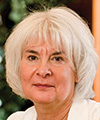
The Nature of Language Acquisition
Ellen M. MarkmanStanford University
On a daily basis, infants and toddlers encounter a plethora of items ranging from animals to appliances their parents use. Despite their limited abilities to process information, even very young children are remarkably capable of learning the names of these objects. Ellen M. Markman conducted some of the pioneering research on the reasoning skills that infants and young children use to figure out the meanings of words. When someone points to an object and labels it, how do children conclude the label refers to the object itself, rather than its color, size, shape, texture, activity, attractiveness, and so on? Markman has postulated that by the time children begin to acquire their vocabulary, they have a set of default assumptions that together enable children to quickly zoom in on some hypotheses and rule out others. Through extensive experimental research, Markman has challenged the traditional theories of word learning and provided new insights into the nature of language acquisition.
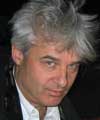
Winning Streak, Really?
Peter AytonCity University London, United Kingdom
Peter Ayton studies our judgment and decision making processes, especially where those processes often go wrong. He has investigated judgment errors like the hot-hand fallacy, in which people tend to expect that recent positive successes within a random sequence will continue—like a basketball player on a “hot” shooting streak—and the related gambler’s fallacy, in which people expect that such a positive or negative streak will eventually be balanced out. Ayton has also examined the ways in which these fallacies can harm us, such as the increase in bicyclist deaths in the aftermath of the 2005 London underground bombing, as fear caused many people to abandon the subway in favor of cycling—statistically a much more dangerous mode of transportation. His research has helped bring to light our judgment errors in all aspects of modern life, including sports, health, and computing.
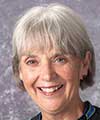
Defining and Shaping Health Psychology
Karen A. MatthewsUniversity of Pittsburgh
Karen Matthews, renowned for her many contributions to the formation and growth of health psychology, helped set the stage for expansion of the field through her editorship of Health Psychology, advisory roles at National Heart Blood Institute, and through her participation in the landmark National Working Group on Education and Training in Health Psychology. At the University of Pittsburgh, she initiated an innovative Cardiovascular Behavioral Medicine training program that provided multidisciplinary training to many individuals who later became leaders in the health psychology field. Matthews’ research accomplishments have included seminal work on childhood antecedents of coronary heart disease risk, women's health and menopause, and the effects of socioeconomic status on health. She is the recipient of a 25th anniversary APS James McKeen Cattell Fellow Award for her groundbreaking research in health psychology. Read more about Matthews’s research here.

Cracking the Speech Code
Patricia K. KuhlUniversity of Washington
How exactly do we learn to speak? Patricia Kuhl has spent her career developing answers to that question. Kuhl is internationally recognized for her research on early language and brain development, and for her studies that show how young children learn. She is co-director, with her husband Andrew Meltzoff, of the University of Washington’s Institute for Learning & Brain Sciences. Kuhl’s lab investigates how infant and adult brains process speech. She has also conducted research on language development in autism. Kuhl is widely known for her theories that account for the developmental change by which infants’ ability to discriminate speech sounds becomes increasingly specific to their native language as they age. This model shows that babies use their computational abilities to “crack” the speech code and that their social skills play an important role in learning. Her research has played a major role in identifying critical periods in development. Kuhl is a recipient of a 25th anniversary APS William James Fellow Award for her significant intellectual contributions to the basic science of psychology. Read more about Kuhl’s research here.

Understanding Others
Jason MitchellHarvard University
In order to effectively communicate with another person, we need to know something about his or her mental state: how they are feeling, what they are thinking, and what motivates them. Jason Mitchell is using brain imaging techniques to study how we function socially, an example of the growing field of social neuroscience. His research has clarified two characteristics of social cognition: first, that social thought is different from other types of thinking, and second, that one of the ways we understand the minds of others is by referring to our own mental state. In 2010, Mitchell was among the inaugural recipients of the APS Janet Taylor Spence Award for Transformative Early Career Contributions. Q&A with Jason Mitchell
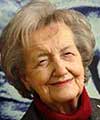
Understanding Brain Functioning
Brenda MilnerMcGill University, Canada
Brenda Milner greatly expanded our understanding of brain functioning through her study of the cognitive deficits associated with temporal and frontal lobe injury. Her most famous work involved a series of experiments with patient H.M., a patient who had most of his medial temporal lobe removed in order to control his severe epilepsy. Although the surgery was successful in controlling his seizures it left him with anterograde amnesia. Milner’s experiments with H.M. not only identified specific brain areas responsible for memory functioning, but also indicated that the brain had more than one memory acquisition system. Her research demonstrated lateralization of function within the brain and provided evidence that functional reorganization can occur after brain damage. Her more recent work focuses on understanding the neural substrates responsible for second language learning and on identifying brain areas responsible for higher-order language processing. Milner is a Companion of the Order of Canada, a fellow of the Royal Society of Canada and the Royal Society of London. She is a recipient of an Association for Psychological Science (APS) William James Fellow Award for her lifetime of significant intellectual contributions to the basic science of psychology, as well as the Pearl Meister Greengard Prize and the Balzan Prize. Watch Inside the Psychologist’s Studio with Brenda Milner.

Early Diagnosis and Intervention for Autism Spectrum Disorder
Geraldine DawsonUniversity of North Carolina at Chapel Hill and Autism Speaks
Geraldine Dawson’s research has contributed greatly to the growing body of evidence about autism spectrum disorder (ASD), especially in young children. Dawson has approached ASD from all angles, from conducting studies of early brain and behavioral development to genetic research. She pioneered the use of event-related potentials to study early brain function in very young children with ASD. Her main focus, however, lies in early diagnosis and intervention. She was one of the first researchers to demonstrate that autism symptoms could be recognized in young infants. Recently, with Sally Rogers, Dawson helped develop the Early Start Denver Model (ESDM) for behavioral intervention for toddlers with autism. She empirically validated this model in the first-ever randomized, controlled trial of a comprehensive behavioral intervention for toddlers with autism, and the results revealed that children who received ESDM showed significant improvements in IQ, language, and adaptive behavior. Dawson is a recipient of the Association for Psychological Science (APS) James McKeen Cattell Fellow Award for her lifetime of significant intellectual achievements in applied psychological research. Watch Dawson’s Award Address at the 24th APS Annual Convention.

Predicting Psychosis
Elaine WalkerEmory University
In the search for new ways to prevent and treat mental illnesses, scientists are refining their understanding of the interplay between environmental factors and brain development in these disorders. Elaine F. Walker has been instrumental in propelling this area of research forward. In one of her most well-known studies, she retrospectively examined childhood home movies of adult-onset schizophrenia patients and their healthy siblings using quantifiable behavioral observations. This approach was groundbreaking in examining real-time predictions of schizophrenia across the early developmental trajectory. Most recently, Walker and her colleagues have been studying a developmental period called the “prodrome,” or the period of months or years that lead up to the onset of a clinical psychiatric disorder. Their aim is to enhance understanding of the neural mechanisms that trigger psychosis. Walker’s research carries important implications for public health and development of novel preventive interventions. Watch Walker’s Award Address at the 25th APS Annual Convention.

Understanding Academic Stressors
Sian BeilockUniversity of Chicago
Whether it’s before a big presentation, during an exam, or after grades have been posted, at some point or another, everyone experiences stress in school. Sian Beilock’s research analyzes how stress in academic settings affects performance. She is interested in various academic stressors such as the chronic stress that a female math major might experience from the negative stereotype that “men are superior to women in math,” the pressure that most people experience while taking a high-stakes college admissions test, and the anxieties some hold about their performance in a particular academic area (e.g., math anxiety). Her innovative and unique research enables her to get a deeper understanding of why poor performance occurs in stressful academic situations and to generate interventions to alleviate performance impediments. She is author of the book, Choke: What the Secrets of the Brain Reveal about Getting in Right When You Have To (http://sianbeilock.com). In 2011, Beilock received a Janet Taylor Spence Award for Transformative Early Career Contributions from the Association for Psychological Science (APS). Q&A with Sian Beilock

Culture and Health
James S. JacksonUniversity of Michigan, Ann Arbor
Where we come from and the cultural environment we were raised in has a big impact on many aspects of our lives. James Jackson's research focuses on how culture influences our health (both mental and physical) during our lives, attitude changes, and social support. Jackson has contributed enormously to our understanding of race relations and racism, not just in the United States, but around the world. For example, his research has highlighted how racial discrimination can affect physical and mental health and treatment. He has conducted very comprehensive social, political behavior, and mental and physical health surveys on African American and Black Caribbean populations. Among the goals of these surveys was the documentation of the physical, mental, emotional, and economic conditions of African Americans at the start of this century. Jackson is a member of the Institute of Medicine of the US National Academies of Science and Engineering, a Fellow of the American Academy of Arts and Sciences, and a founding member of the Aging Society Research Network of the MacArthur Foundation. He is a recipient of the Association for Psychological Science (APS) James McKeen Cattell Fellow Award for his lifetime of significant intellectual achievements in applied psychological research. Watch Jackson’s Keynote Address at the 24th APS Annual Convention.

Motivational Success
Ruth KanferGeorgia Institute of Technology
Ruth Kanfer’s research examines the role of motivation, personality, emotion, and self-regulation in training, performance, and work transitions across the lifespan. Her work investigates the structure and influence of motivational traits such as mastery, desire to learn, competitiveness, and worry on goals and skill training, consequences of job search behavior, and the predictive validity of traits for academic and job success. Her research also explores emotion regulation, motivation in an aging workforce, and person determinants of contextual work behaviors.

Learning and Memory
Henry L. “Roddy” Roediger, IIIWashington University in St. Louis
Henry L. “Roddy” Roediger, III has spent a career studying human learning and memory, particularly processes of memory retrieval. His recent research has focused on the power of retrieval as a mechanism for improving learning and retention and in applying this work to educational settings. His research has demonstrated that students retain more material when they retrieve it via tests than from restudying it, and Roediger and his collaborators are conducting field studies to determine whether their test-enhanced learning intervention is effective under actual classroom conditions. (It is). Roediger is also interested in illusions of memory. Through his investigation of false memories, Roediger and his team have demonstrated that people can incorporate aspects of present events into their memories, leading to very vivid — but untrue — memories. Roediger has also studied how false memories can be created by remembering in groups and how older adults generally show a greater propensity to false memories. His research includes the development of the Deese-Roediger-McDermott paradigm, which demonstrates that when people are given a list of words strongly related to a central (but not presented) word, there is a high probability of falsely remembering the associated word that was not presented. Roediger’s earlier research was concerned with implicit memory, or how past experience can be expressed in ongoing behavior with little or no awareness of memory processes being involved; with hypermnesia (how memories can be recovered over time without intervening study); and with how retrieval of some information can impair retrieval of other information (a process now referred to as retrieval induced forgetting). Roediger is a Past President of the Association for Psychological Science (APS). He is a recipient of the Association for Psychological Science (APS) William James Fellow Award for his lifetime of significant intellectual achievements to the basic science of psychology. See http://psych.wustl.edu/memory/ for more information. Watch Roediger’s Award Address at the 24th APS Annual Convention. Watch Roediger’s Bring the Family Address at the 26th APS Annual Convention in May 2014.

Recognizing Without Seeing
Beatrice de GelderMaastricht University
Facial expressions and body language are among the most powerful forms of nonverbal communication, and can reveal a great deal about emotion. Beatrice de Gelder investigates the neuroscience of automatic, nonconscious responses we have to the unspoken, emotional cues we observe in others. De Gelder pioneered the neuroscience of body language and has conducted innovative studies in a number of areas, including face recognition and emotional body expressions. In a landmark experiment, she and her colleagues showed that, when exposed to pictures of faces showing strong emotions, people with visual impairment make the same involuntary facial movements as people with normal sight. Blind people, for instance, smile in response to an image of a happy person, even though they can’t see the picture. De Gelder’s prolific line of research on nonconscious perception has fueled new perspectives on emotion deficits in schizophrenia and autism

Employee Goal Setting
Gary LathamUniversity of Toronto, Canada
Every employer wants to know the secret to employee motivation. Since the 1970s, Gary Latham has been investigating methods to boost employee performance. His primary interests lie in motivation, performance management, and training. Latham has also co-developed the theory of and conducted extensive research on goal setting, as well as ways employers can use goals to effectively increase job performance and job satisfaction. His studies have revealed that employees perform better when they are given specific, challenging goals compared to easy goals or no goals at all. Latham compiled the results from his goal setting studies and other research into a book for managers entitled, Becoming the Evidence-Based Manager: Making the Science of Management Work for You. He is the recipient of the APS James McKeen Cattell Fellow Award for his lifetime of significant intellectual achievements in applied psychological research and their impact on a critical problem in society at large. Watch Latham’s Award Address at the 23rd APS Annual Convention.
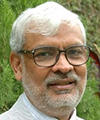
Inferring Missing Information
Ramadhar SinghAhmedabad University, Ahmedabad, India
Every day people make judgments and decisions, even when they don’t have the necessary information. Ramadhar Singh studied how people, when making predictions about others, infer the missing information from the facts they do have. In his research, Singh first experimentally demonstrated that Predicted gift size = Generosity x Capability (Income). Based on this evidence, he then identified that inferred value of the missing capability information increases with the given value of generosity information. In contrast, inferred value of the missing generosity information is constant usually around the middle level of generosity in the donor. Singh and his colleagues also demonstrated similar inferences about missing ability and motivation information in prediction of performance. Singh’s work identifying these kinds of asymmetrical inferences has helped social and cross-cultural psychologists understand and investigate how people judge morality and achievement of others even without the needed information.
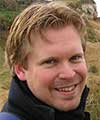
Modeling the Brain and Mind
Rogier KievitMedical Research Council - Cognition and Brain Sciences Unit, Cambridge, United Kingdom
Cognitive neuroscientists study people at two explanatory levels: the brain and behavior. Using psychometric models and brain imaging tools, Rogier Kievit explores how theoretical psychology, neuroscience, and philosophy of mind can be used to understand the links between the brain and behavior. His current research relates brain function and structure (using MRI) and cognition in aging populations using structural equation models and network analysis. With the goal of increasing health in older populations, Kievit’s particular interests are in models that effectively capture how cognitive changes across lifetime relate to brain reorganization, adaptation and compensation.

Memory and Law
Elizabeth F. LoftusUniversity of California, Irvine
Elizabeth Loftus is an internationally recognized expert in the study of human memory, particularly the malleability of memories. Her extensive research shows that memory is highly susceptible to distortion and manipulation, and that people can vividly recall events that never happened. Loftus developed the “Lost in the Mall” technique, or Familial Informant Narrative Procedure, in which a study participant is told about a time the participant got lost in a shopping mall. Even though the event didn’t happen, a significant percentage of participants developed a false memory for the experience. Her research on false memory, the reliability of eyewitness reports, and memories “recovered” through therapy has affected how law enforcement, courts, and psychologists consider eyewitness testimony. She has served as an expert witness or consultant about false memories in hundreds of legal cases, including the McMartin preschool molestation case; the trial of Oliver North; the Rodney King beating; litigation involving Michael Jackson, Martha Stewart, and Scooter Libby; and Bosnian war crimes trials in The Hague. Loftus is a member of the National Academy of Sciences the Royal Society of Edinburgh. Watch Inside the Psychologist's Studio with Elizabeth Loftus.
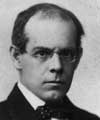
Giving Science Its Due
James McKeen CattellOne of the early advocates of using quantitative methods in psychology, James McKeen Cattell studied under William Wundt, the “father” of experimental psychology, in Germany. Cattell, the first professor of psychology in the United States, was interested in the quantitative measurement of intelligence. His goals led him to pursue classic studies looking at differences between individuals’ reaction times during simple mental tasks, such as naming colors. Although Cattell’s “mental tests” have been replaced with more reliable intelligence measures, Cattell was a tireless advocate for experimental psychology and his work helped convince the academic world that psychology was not just a “pseudoscience.” He said that knowing certain things (i.e., what we can remember or someone’s reaction time) are facts of science which must be translated into an understanding of what we can learn from those traits and “disentangle the complex factors of heredity and environment.” To foster his interest in applied psychology, Cattell formed The Psychological Corporation to market psychological tests and related materials to educational, corporate and government clients. Cattell was also known for his work in scientific publishing. He founded the journal Psychological Review, Popular Science Monthly (which later became Popular Science), and from 1894 until his death also owned the preeminent journal Science and established it as the journal of the Association for the Advancement of Science. In 1942, Cattell established the James McKeen Cattell Fund to provide researchers with financial support to extend their university sabbatical to conduct scientific research and promote the dissemination of psychological science. The Association for Psychological Science (APS) established the James McKeen Cattell Fellow Award to honor individuals for their lifetime of significant intellectual achievements in applied psychological research and their impact on a critical problem in society at large.
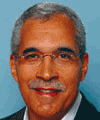
Understanding the Power of Stereotypes
Claude SteeleUniversity of California, Berkeley
Throughout his career Steele has been interested in processes of self-evaluation, in particular in how people cope with threatening self-images. This work has led to a general theory of self-affirmation processes. A second interest, growing out of the first, is a theory of how group stereotypes—such as stereotypes about African Americans in academic domains and women in quantitative domains—can influence intellectual performance and academic identities. Third, he has investigated addictive behaviors, particularly alcohol addiction, where his work with several colleagues has led to a theory of “alcohol myopia,” in which many of alcohol's social and stress-reducing effects are explained as a consequence of its narrowing of perceptual and cognitive functioning. Steele is a recipient of the Association for Psychological Science (APS) William James Fellow Award for his lifetime of significant intellectual achievements to the basic science of psychology. Watch Inside the Psychologist’s Studio with Claude Steele and Elizabeth Phelps.
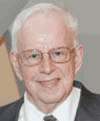
Modeling Cognition
Philip Johnson-LairdPrinceton University
Philip Johnson-Laird, studies how people infer and deduce the possibility and probability of something happening. He has developed computer programs which quantify the validity of certain deductions, paving the way toward greater understanding of deductive reasoning and thinking that challenge the idea that people have the laws of logic and probability in their heads. Johnson-Lairds book Mental Models: Toward a Cognitive Science of Language, Inference, and Consciousness unifies theories of comprehension, inference, and consciousness. He also studies emotions and cognition. Individuals suffering from psychological illnesses, such as depression or anxiety, in fact reason better than healthy individuals but only about topics concerning their illnesses. An avid composer and jazz pianist, he also studies and teaches the psychology of music. Johnson-Laird is a recipient of the Association for Psychological Science (APS) William James Fellow Award for his lifetime of significant intellectual achievements to the basic science of psychology. Watch Johnson-Laird’s Award Address at the 23rd APS Annual Convention.
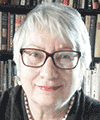
Busting Myths on Autism, Dyslexia
Uta FrithUniversity College, London, United Kingdom
Autism was once thought to be the result of detached parenting rather than a condition of the brain. Internationally renowned developmental psychologist Uta Frith was among the first scientists to debunk that myth. Frith found that autistic people have trouble understanding mental states and find it hard to intuit what others may be thinking. She has also suggested that individuals with autism are highly capable of processing details but worse than other individuals at integrating information from many sources. And Frith has been a major force in destigmatizing dyslexia, showing it to be separate from environment and intelligence. Frith is the recipient of an APS 25th anniversary William James Fellow Award for her significant intellectual contributions to the basic science of psychology.
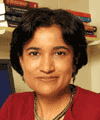
Demystifying Memory
Suparna RajaramStony Brook University
Suparna Rajarams research focuses on memory and amnesia, particularly how we recall past experiences and acquire and retain new knowledge. She investigates the differences between implicit (unconscious) memory and explicit (conscious) recollection as well as the components of episodic (i.e. autobiographical details, times, places) and semantic (i.e. meanings, concepts) memory, and familiarity. Rajaram is also interested in how attentional demands in our environment lead us to ignore salient information, thus inhibiting expression of new memories. Rajarams new line of research focuses on how collaboration with others may improve memory.

Mindsets for Self-Improvement
Carol S. DweckStanford University
Carol S. Dweck's empirical work has revealed that when we see ourselves as possessing fixed attributes, we blind ourselves to our potential for growth and prematurely give up on engaging in constructive, self-improving behaviors. In contrast, seeing the self as a developmental work in progress can lead to the acquisition of new skills and capabilities. This theoretical framework has been used to address a variety of societal concerns, such as achievement gaps between ethnic or gender groups. Dweck finds that victims of negative stereotypes who have (or are taught to adopt) a growth mindset can then take a more mastery-oriented stance to achieve their goals even in unfavorable learning environments. As a result, they can often excel despite the obstacles they face. The impact of Dweck's work has spread to other domains beside academic achievement - including willpower, conflict resolution in the Middle East, racial prejudice, and adolescent aggression. Her rigorous research has been applied extensively in schools and organizations to empower children and adults around the world, and she is a recipient of an APS 25th anniversary James McKeen Cattell Fellow Award for bridging disparate fields of developmental, social, and personality psychology. Read more about Dweck's research here.
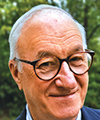
Learning Through Observation
Albert BanduraStanford University
The famous Bobo doll experiment showed that children learn through observation, not just through reward and punishment. In that classic study, Albert Bandura showed that children who had watched adults beat an inflatable clown doll learned to model the same aggressive behavior. This study marked an important shift in the field of psychology toward a social–cognitive model of learning. For almost 60 years, Bandura’s work in the fields of social and cognitive psychology has served as a foundation for research on topics ranging from moral judgment to the effects of media violence. Considered one of the most influential psychological scientists of all time, Bandura is a recipient of the APS James McKeen Cattell Fellow Award for his achievements in applied psychological research. Watch Inside the Psychologist’s Studio with Albert Bandura and Gian Vittorio Caprara.
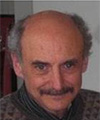
Putting Thought Into Action
David A. RosenbaumPennsylvania State University
How do we get from thoughts to actions? David Rosenbaum’s research focuses on answers to that question. Using a range of research methods, including behavioral observation, brain-wave recordings, and computational modeling, Rosenbaum studies the planning and control of everyday physical activities. He and his colleagues have shown that physical actions reflect our surprisingly deep and subtle knowledge about the features of our bodies and our surrounding environment. His books include Human Motor Control, MATLAB For Behavioral Scientists, and It’s A Jungle In There: How Competition and Cooperation In The Brain Shape The Mind.
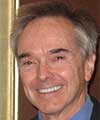
Improving the Science and Practice of Youth Mental Health Care
John R. WeiszHarvard University
John Weisz uses psychological science to help children and adolescents overcome emotional and behavioral problems—including depression, anxiety, and misconduct. Following his Deployment-Focused Model of intervention development and testing, Weisz uses randomized controlled trials and meta-analyses to identify interventions that will succeed in the community clinic and school settings where young people most often receive mental health care. Through his Harvard Lab for Youth Mental Health, Weisz and his team carry out multiple projects with a network of collaborators, including researchers from diverse disciplines, policymakers and government leaders, clinic and school personnel, and the true experts: families who use the mental health care system. Weisz is the recipient of a 25th anniversary APS James McKeen Cattell Fellow Award for bringing science and practice together to improve youth mental health care. Read more about Weisz’s research here.

The Poverty Trap
Eldar ShafirPrinceton University
Poor people are the subject of many negative stereotypes, including the assumption that they are inherently incapable of making sound financial decisions. But APS Fellow Eldar Shafir has demonstrated that the cognitive load and bandwidth limitations imposed by living with scarcity can lead to bad financial choices that often trap people in a cycle of poverty. Shafir studies decision making, judgment, and behavioral economics. His recent research has focused on decision making in contexts of poverty and on the application of behavioral research to policy. In various experiments, Shafir and his colleagues have shown that, when faced with financial stress (but not otherwise), poor people fare worse on cognitive tasks than well-off people. His work shows that juggling a life of poverty consumes mental resources, which can distort decision making in ways that exacerbate poor behaviors under financial hardship.

The Flow of Happiness
Mihaly CsikszentmihalyiClaremont Graduate University
Whether in the creative arts, athletics, work, or spiritual practice, happiness lies in working to expand one’s skill level. Mihaly Csikszentmihalyi has devoted his career to studying what makes people happy. Building on years of detailed research, Csikszentmihalyi created the term “flow” to describe the experience of being completely immersed in an activity for its own sake. When someone is in a state of flow, self-consciousness disappears and sense of time becomes distorted, according to Csikszentmihalyi’s research. “An activity that produces such experiences is so gratifying that people are willing to do it for its own sake,” he once wrote, “with little concern for what they will get out of it, even when it is difficult or dangerous.”

Understanding the Biological Basis of Behavior
John T. CacioppoThe University of Chicago
John T. Cacioppo's research looks at the connections between the social and neural mechanisms underlying human behavior. He investigates how societal influences and personal relationships affect cognition and emotions. As a social species, humans have created a network of connections- ranging from families to international alliances- that serve both social and biological needs. Cacioppo's research is focused on understanding the neural, hormonal and genetic mechanisms that motivate humans to interact and their effects on the mind, behavior, and health – an approach known as social neuroscience. Cacioppo's current research focuses on the adverse effects of social isolation and loneliness on our well-being.

Illuminating Speech Impairment in People With Autism
Morton Ann GernsbacherUniversity of Wisconsin-Madison
Morton Ann Gernsbacher's research has for 20 years investigated the processes and mechanisms that underlie language processing. She empirically challenged the view that language processing involves language-specific mechanisms by proposing that, instead, it draws on general processes. During the past few years (motivated by personal passion) Gernsbacher's quest has been to answer the fundamental question of why some individuals with autism cant speak. In this pursuit, Gernsbacher has already made a highly significant discovery: Some individuals with autism cant speak because of motor planning challenges. This discovery has begun a paradigmatic shift in revealing the basis of speech impairment in autism. Watch Gernsbacher's Bring the Family Address from the 25th APS Annual Convention.
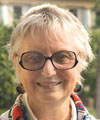
Understanding Romantic Relationships
Elaine HatfieldUniversity of Hawaii at Manoa
For advice on love, you’re probably better off going to Elaine Hatfield than Dr. Drew. In her more than 40 years of research, Hatfield has taken an empirical approach to understanding different facets of romantic relationships, including physical attraction, relationship satisfaction, sexuality, and emotional intimacy. She pioneered the theory that there exist two types of romantic love, passionate and companionate. Though intense, irrational passionate love differs greatly from deeply affectionate and stable companionate love, Hatfield has found that both have an impact on relationship satisfaction and longevity. She also designed the Passionate Love Scale to quantify components of passionate romance; today this scale is used everywhere from psychology labs to online dating sites. Her research extends beyond romantic relationships, however; she has also studied extensively the idea of equity, or fairness, in social contexts, as well as the influence of gender on sexual motivation and behavior. Hatfield is a recipient of the Association for Psychological Science (APS) William James Fellow Award for her lifetime of significant intellectual contributions to the basic science of psychology. Watch Hatfield’s Award Address at the 24th APS Annual Convention (introduction by Ellen Berscheid).
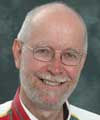
The New Statistics
Geoff CummingLa Trobe University, Australia
Statistics has been called “the grammar of science.” Few understand this idea better than Geoff Cumming, whose research explores statistical cognition, or how we use and interpret statistical methods. He is particularly interested in replication, and much of his work has examined the difference between using p values and confidence intervals, two statistical methods for evaluating differences between experimental groups (like a drug vs. a placebo), to assess statistical uncertainty and study repeatability. Though reporting statistical significance with p values is more common in most scientific disciplines, Cumming has found these values to be unreliable, varying greatly between repetitions of an experiment, while confidence intervals often provide better insight into a study’s results and their replicability. He has used these findings to urge psychological researchers in fields ranging from giftedness to clinical psychology to report confidence intervals and effect sizes, and also to use meta-analysis, in order to improve the reliability of their statistical analyses. He refers to these better techniques as 'the new statistics': www.thenewstatistics.com. He is author of Understanding The New Statistics.

Stress on Behavior
Jeansok KimUniversity of Washington, Seattle
Jeansok Kim investigates how stress influences behavior. His work has shown that stress likely affects learning and memory by changing electrical activity in a section of the brain called the hippocampus. Research in Kim’s lab has also revealed that these electrical changes are mediated by N-methyl-D-aspartate (NMDA) receptors that are found in the brain. Kim’s laboratory also uses behavioral animal models to test what forms of learning are affected by stress and to study the processes that allow animals to learn. He is the recipient of a James McKeen Cattell Fund Fellowship.

Age Is Just a Number
Ellen LangerHarvard University
People tend to proceed through life trying to act their age. But the pioneering research of Ellen Langer suggests that adopting the attitude of a younger person may actually have health benefits. In a classic 1981 study, she had old men live in a retreat that was retrofitted to look like 1959, while they pretended that they were living in that year. She and her colleagues found that the men experienced improvements in vision, strength, and other abilities, and that they actually looked younger as well. Langer’s mind-body research indicates that just as social cues can make us feel old, other social cues can make us feel and act young.

Debunking pseudoscience and studying psychopathy
Scott O. LilienfeldEmory University
Scott Lilienfeld is both a researcher of and advocate for psychological science. His clinical work has primarily focused on psychopathy; he developed the Psychopathic Personality Inventory (PPI-R), a 154-item personality test developed to be taken by general, rather than clinical, populations. The PPI-R provides an indication of traits associated with psychopathy without linking them to specific behaviors. Additionally, Lilienfeld has devoted much of his work to correcting the widely misunderstood nature of psychopathy, which is still commonly — but falsely — believed to be a signifier of violent tendencies and psychotic disorders. He has expanded this pursuit to include debunking pseudoscience and common psychological myths of all kinds, such as the idea that “opposites attract” or that people only use 10% of their brain, in addition to providing guidance for people so they can recognize a bogus psychological claim when they see one. Lilienfeld has also examined the related issue of why the general public often views psychological research as an unscientific pursuit, and he has made recommendations for how individuals and institutions can convey the scientific rigor of psychology to general as well as clinical populations.

How Relationships Shape Emotions
James CoanUniversity of Virginia
Humans are very emotional creatures. James Coan studies how our emotions are shaped by our social relationships. In particular, he is interested in how we use various emotional behaviors–such as facial expressions and verbal communication–to adjust our emotions, as well as the emotions of others. Coan is testing the theory that when we are alone, tasks we have to perform may seem more difficult and appear to take up more of our resources than when we are in the company of others. This “social baseline theory” suggests that human social interactions have evolved as a way to help us conserve energy. Coan's innovative work (integrating many disciplines and using multiple methodologies) will shape how research will be done for many years to come. In 2010, Coan was among the inaugural recipients of the APS Janet Taylor Spence Award for Transformative Early Career Contributions. Q&A with James Coan

Exploring Word and World Acquisition
Arnaud ReyCNRS – Université de Provence, France
How do we acquire language and what is the cognitive architecture involved in written or spoken language processing? What are the general learning mechanisms allowing us to extract the statistical regularities of the world? How do these mechanisms structure our conscious states? Through his research, Arnaud Rey addresses these questions by testing and refining computational models of cognition and language processing. But, beyond these easy problems (that humans will certainly solve sooner or later), he is interested in understanding how human language has emerged throughout evolution.
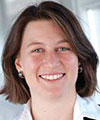
Stress at the Molecular Level
Iris-Tatjana KolassaUniversity of Ulm, Germany
Traumatic stress not only affects our brains, but can also strike us at the cellular level. Iris-Tatjana Kolassa explores the biological, particularly the molecular, changes that occur after situations of extreme stress. She is also studying whether therapeutic interventions can reverse such alterations. Kolassa’s work has been of increasing influence on an international scale as it signals a paradigmatic breakthrough, creating the scientific sub-discipline of “molecular psychology,” which employs molecular biology for the advancement of psychological science. It uniquely demonstrates how molecular methods may be incorporated into the system sciences of clinical psychology and behavioral neuroscience. Additionally, she investigates genetic risk factors that contribute to the development of a fear network in which memories of traumatic events are stored. As part of her work, she collaborates intensively with partners from molecular biology, molecular toxicology, immunology, genetics, and molecular medicine. She is the recipient of an APS Janet Taylor Spence Award for Transformative Early Career Contributions. Q&A with Iris-Tatjana Kolassa

Understanding and Improving Children’s Lives
Sandra ScarrUniversity of Virginia
What influences children’s development? Sandra Scarr’s research shows the impact of genes, daycare, adoption, parental influence, and intervention programs on the development of children. Her work with identical and fraternal twins and her use of adoption studies greatly enhanced the understanding of the genetic influences associated with the development of intelligence. Scarr’s research on child poverty, child care, and children’s education has had far-reaching and lasting influence on public policy in those areas. . Scarr also served as CEO of Kinder Care Learning Centers, the largest day-care provider in the US. She is a Past President of the Association for Psychological Science (APS), as well as a founding co-editor of the APS journal Current Directions in Psychological Science. She is a fellow of the American Academy of Arts and Sciences and the American Association for the Advancement of Science. Scarr is a recipient of the APS James McKeen Cattell Fellow Award for her lifetime of significant intellectual achievements in applied psychological research.
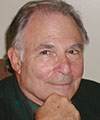
Emotional Profiling
Paul EkmanPaul Ekman Group, LLC
Paul Ekman studies facial expressions and the way they can signal deception and reflect a person’s true underlying emotion. Ekman’s research was the first to show that some types of facial expressions (such as fear, disgust, and anger) are universal among all cultures; and along with Wallace V. Friesen he developed the widely used Facial Action Coding System – a taxonomy of every facial expression. His research on identifying deception and hidden demeanor is used by law enforcement and national security organizations to help identify security threats. Ekman was named one of TIME magazine’s 100 most influential people, one of APA’s most influential psychologists of the 20th century, and was the inspiration for the main character, Cal Lightman, on the TV show “Lie to Me.” Ekman has even consulted with the animation studio Pixar to help bring their characters to life. He is the recipient of the Association for Psychological Science (APS) William James Fellow Award for his lifetime of significant intellectual contributions to the basic science of psychology. Watch Inside the Psychologist’s Studio with Paul Ekman and Robert Levenson.

Analyzing Data
Patrick OnghenaKatholieke Universiteit Leuven, Belgium
In scientific experiments as in architecture, it’s all about design. Patrick Onghena studies methodology and statistics in order to help other investigators properly set up their studies and analyze their results. He is especially interested in optimizing single-case experimental design so that researchers can glean as much reliable information as possible from small data sets. His recommendations have influenced the field of methodology and have been used in several studies on pain, depression, chronic fatigue, language pathology, learning disorders, relational aggression, and education. Onghena’s other area of expertise is meta-analysis, an increasingly vital tool for examining large volumes of data from many different studies that all address similar hypotheses. He has applied his meta-analytical skills to replicated single-case experiments and to a range of questions, like the possible pain-relieving effect of antidepressants and the effect of early prevention programs for families with young children at risk for physical child abuse and neglect.

How Food Preferences Develop
Julie MennellaMonell Chemical Senses Center
Most kids refuse to eat their vegetables. Coming up with strategies to get kids to eat more of the green stuff is just one question Julie Mennellas lab is tackling. However, Mennellas research focus is not just on picky eaters. Her main research interests involve various components of food and taste preference, including how weve evolved to enjoy certain flavors over others. She investigates how we develop taste and flavor preferences. For example, she currently studies how a new mothers diet, via changes in amniotic fluid and breast milk, may affect a childs food preferences. In addition, Mennella is trying to determine if there are sensitive periods for flavor learning and food preference as well as the effect of alcohol and smoking on the types of food and flavors that we prefer.
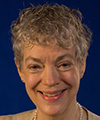
The Source of Stereotypes
Susan T. FiskePrinceton University
It’s human nature to categorize people. When we meet someone for the first time, we make instant judgments about their social status and their personality. Susan Fiske has devoted her career to examining the role of these kinds of judgments in stereotypes and bias. Her research shows that we favor people whom we see as warm and competent, and snub those we view as cold and inept. These perceptions are heavily influenced by race, age, gender, and disability, which can lead to stereotyping and discrimination. With the help of brain imaging, Fiske has found that our social perceptions and prejudices have neural components. But while prejudice may be an inevitable part of the human condition, Fiske’s research shows that it also is surmountable.

Understanding Cognition Through Mathematical Models
Eric-Jan WagenmakersThe University of Amsterdam, The Netherlands
In order to improve our understanding of the human mind it is essential to collect data by measuring brain and behavior. Proper interpretation of such data, however, requires coherent data analysis and the development of formal process models. Eric-Jan Wagenmakers advocates Bayesian analysis tools and instantiates cognitive mechanisms in specific mathematical models. Such models stimulate the development of new theory and allow a more effective interaction between psychology and neuroscience.
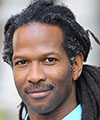
The Science of Addiction
Carl HartColumbia University
Growing up in poor urban neighborhood, Carl Hart watched crack cocaine ravage the lives of his relatives. Early in his research career, Hart set out to find a neurological cure for chemical addiction. But as he began studying addicts, he found that there was more at issue than the neurochemical properties of the illicit drugs. In groundbreaking experiments, he offered crack addicts a choice between a dose of the drug or a monetary reward. When the dose was smaller, addicts often chose the money. When the monetary reward increased, all the participants opted for financial gain over getting high. A tenured science professor at Columbia University — and the first African-American to hold that distinction — Hart has leveraged his research to advocate for policy reforms. He argues that law enforcers focus too heavily on prosecuting drug users while ignoring poverty, racism, and other socioeconomic conditions that spur substance abuse and crime.
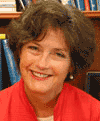
Illuminating Cognitive Development
Judy DeLoacheUniversity of Virginia
In her research on early cognitive development, Judy Deloache examines how young children come to understand the various types of symbolic representations around them. Her research on infants and young childrens understandings of pictures, models, and replica objects shows that they have difficulty understanding the relation between a symbolic object and what it stands for. Failing to achieve what she refers to as dual representation, infants and toddlers often treat symbolic objects as if they were real, trying, for example, to lift a picture of an object off the page on which it appears. She recently documented a new phenomenon called scale errors, in which young children treat a miniature object as though it were its much larger counterpart, trying, for example, to sit in a tiny chair or get into a miniature car. DeLoache is a recipient of a special 25th anniversary APS William James Fellow Award for her significant intellectual contributions to the basic science of psychology.

Racial Bias in Criminal Justice
Jennifer EberhardtStanford University
Unconscious biases toward African Americans still produce major inequities in the criminal justice system. Using statistical analyses, Jennifer Eberhardt has documented how racially coded features, such as a defendant’s skin color and hair texture, influence jurors’ decisions and the sentences that judges hand down. For example, she’s shown that jurors are more likely to recommend the death penalty for defendants whose features are stereotypically “black.” And she’s demonstrated that police officers are more likely to mistakenly identify black faces as criminal compared to white faces. In 2014, Eberhardt’s worked earned her the prestigious “genius” fellowship from the MacArthur Foundation.
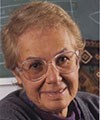
Learning Vocabulary and Grammar
Janellen HuttenlocherUniversity of Chicago (retired)
Janellen Huttenlocher has published on a range of research topics, including language, spatial coding in adults and children, quantitative development, and memory. Huttenlocher has been particularly interested in the role of the child’s environment in the development of cognitive skills. One of her most famous findings is that the verbal behavior of parents and teachers not only determined children’s vocabulary growth, but also their grammatical learning. Huttenlocher has also conducted research on conceptual representation and memory, including the role of concepts in people’s memories of events. Her research reveals that if people are uncertain of an event’s position within a chunk of time, they err toward the middle; asked what day they had been visited by an interviewer four days to 75 days earlier, the errors tended to run toward Wednesday. But they were able to distinguish whether the visit occurred on a weekday or weekend. Huttenlocher also has influenced generations of young psychologists through her mentorship and teaching. Her contributions to the future of psychology has been far-reaching and profound and she is the recipient of a 25th anniversary APS William James Fellow Award for her significant intellectual contributions to the basic science of psychology. Read more about Huttenlocher’s researchhere.

Deconstructing Decision Making
Elke WeberColumbia University
We make decisions all the time and often in uncertain circumstances. Elke Webers research focuses on how we judge those choices, the decisions we end up making, and individual and cultural differences in risk-taking. Specifically, her research examines behavioral models of decision making and how to measure and model risk-taking behavior. Her work has tied together psychology and economics, by examining risky financial decision making. Additionally, she studies environmental decision making, for example, how people respond to climate change and ways in which policymakers can present programs to the public to make them most effective.
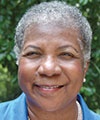
Growing Up Resilient
Margaret Beale SpencerUniversity of Chicago
Children in densely populated and under-resourced areas often need inspiring and thoughtful teachers. Margaret Beale Spencer researches how children build resiliency, identity, and self-esteem, and how well-trained teachers can set a solid example for students. Her experiments identified that children as young as three years old learn discriminatory tendencies, but that these tendencies can be reversed with training. Spencer designed a CNN study to test racial bias in children. In addition to other major sources of recognition, she was awarded the 2006 Fletcher Fellowship, which recognized work that furthers the broad social goals of the US Supreme Court's Brown v. Board of Education decision. Her vulnerability and resiliency focused human development theorizing guides an ongoing program of research on how effective coping strategies can result in healthy outcomes for adolescents in stressful environments, and how teacher/student interactions can be guided to maximize learning.
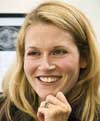
The Power of Social Relationships
Naomi I. EisenbergerUniversity of California, Los Angeles
There’s no doubt about it, rejection hurts. One of the goals of Naomi Eisenberger’s research is to understand why. She looks at why emotional and physical well-being are so strongly affected by social relationships. She examines the underlying neural systems of complex socioemotional experiences (e.g. the rewards of social inclusion and the pains of social rejection) using neuroimaging techniques. Her work suggests that some of the neural regions that typically process physical pain may also be activated when experiencing social pain. She recently started exploring the neural underpinnings of positive feelings associated with social connection. In 2011, Eisenberger received a Janet Taylor Spence Award for Transformative Early Career Contributions from the Association for Psychological Science (APS). Q&A with Naomi I. Eisenberger
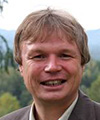
Treatment Tracker
Wolfgang LutzUniversity of Trier
One of the biggest challenges psychotherapists face is deciding on the appropriate treatment for individual patients. Wolfgang Lutz is an internationally recognized researcher on psychotherapy, and is leading the field in collecting important data about treatment effectiveness and results. He has pioneered the concept of expected treatment response (ETR), which involves an individualized log of each patient’s progress in relation to their expected response to the therapy. His work is helping providers to deliver proven and individually tailored treatment plans and to pre-emptively spot patients at risk for treatment failure.
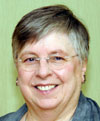
Food for Thought
Linda BartoshukUniversity of Florida
Ask 10 people how a certain food tastes and most likely, you will get 10 different answers. The science of taste is the focus of Linda Bartoshuk's research, including how individuals vary in their genetic ability to taste. In addition to conducting basic taste research, Bartoshuk works with patient populations, studying taste and oral pain disorders. Bartoshuk's lab discovered supertasters, individuals who perceive very intense tastes (they have more taste buds than most people). Due to their strong taste experiences, supertasters tend to avoid a number of foods (e.g., bitter vegetables); this can affect health risks. Recently, she has been interested in accurately comparing the intensities of sensory and pleasurable experiences across individuals/groups, via magnitude-matching experiments. Conventional methods often lead to incorrect comparisons that can have serious clinical consequences (e.g., failures to see important differences in pain intensities between women and men). Bartoshuk is a Fellow of the National Academy of Sciences and a a recipient of a special 25th anniversary APS William James Fellow Award for her significant intellectual contributions to the basic science of psychology.. She is currently in the University of Florida (Gainesville) College of Dentistry. Watch Inside The Psychologist’s Studio with Linda Bartoshuk.




